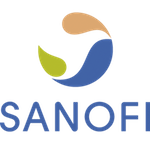The Power of Partnerships: Sanofi and DNDi Innovation Develops and Delivers Anti-malarial Treatment
Feb 8, 2012 1:40 PM ET
(3BL Media / theCSRfeed) February 8, 2012 - In Africa, malaria affects the economy, the ability of adults to work and children to go to school. But mostly, it’s a killer. As a leading cause of mortality among African children, malaria causes 16 percent of deaths among children under age five (compared to 9 percent worldwide), and an African child dies of malaria every 45 seconds. To help fighting against malaria, the Drugs for Neglected Diseases initiative (DNDi), a non-profit drug research and development organization, and Sanofi developed ASAQ® Winthrop (1), a new combination treatment that is sold at preferential prices for public entities.
Malaria is a parasitic disease transmitted from person to person through the bite of the female Anopheles mosquito. According to the World Malaria Report published by the World Health Organization (WHO), the disease was responsible for 655,000 deaths worldwide in 2010. This represents close to 1,800 deaths daily, with nearly 90% of them occurring in Africa. In 2001, the WHO recommended the use of artesunate-based combination therapy (ACT) to treat uncomplicated malaria in Africa and Asia. Experts at the WHO identified it as highly desirable in terms of adherence and ease of treatment, resistance control as well as reduced diversions and possibly cost reduction. Three years later, DNDi and Sanofi formed a public-private partnership, with the goal of developing a non-patented fixed-dose combination of artesunate and amodiaquine to better meet patients’ needs, and specifically, those of children. The result of the collaboration: ASAQ Winthrop, a fixed-dose combination malaria treatment in 1 or 2 tablets once a day. ASAQ Winthrop tablets also dissolve in water. To ensure ASAQ Winthrop is accessible for as many patients as possible, Sanofi established a differentiated pricing policy. This means that for public entities such as governments and NGOs, the drug is sold at a preferential price, including a “no profit – no loss” price of less than one dollar to treat an adult and 50 cents for a child. The same drug is sold under a different brand name to wholesalers that supply private pharmacies at prices that vary according to the country. In addition, Sanofi and DNDi did not seek patent protection, to make the new medicine widely available to those patients in greatest need. In early 2012, ASAQ Winthrop was registered in 29 sub-Saharan African countries, in Colombia and in India with more than 120 million treatments distributed in 21 countries, enabling the treatment of over 120 million malaria attacks. The speed at which ASAQ Winthrop was adopted in the field demonstrates that the drug corresponds to the needs of patients as well as health authorities. It also illustrates the power of partnerships combining different sets of strengths and skills, evolving to include additional stakeholders to meet new global health challenges for poverty-related diseases. Sanofi believes that development and delivery of drugs is not enough. Our Access to Medicines department works with stakeholders in the field to develop a number of training and informational tools about malaria. These educational efforts raise awareness about malaria prevention, diagnosis and treatment by using means adapted to all stakeholders within the healthcare chain. (1) ASAQ® Winthrop is not approved in the US because malaria is not a disease that is prevalent the country. SANO20636
